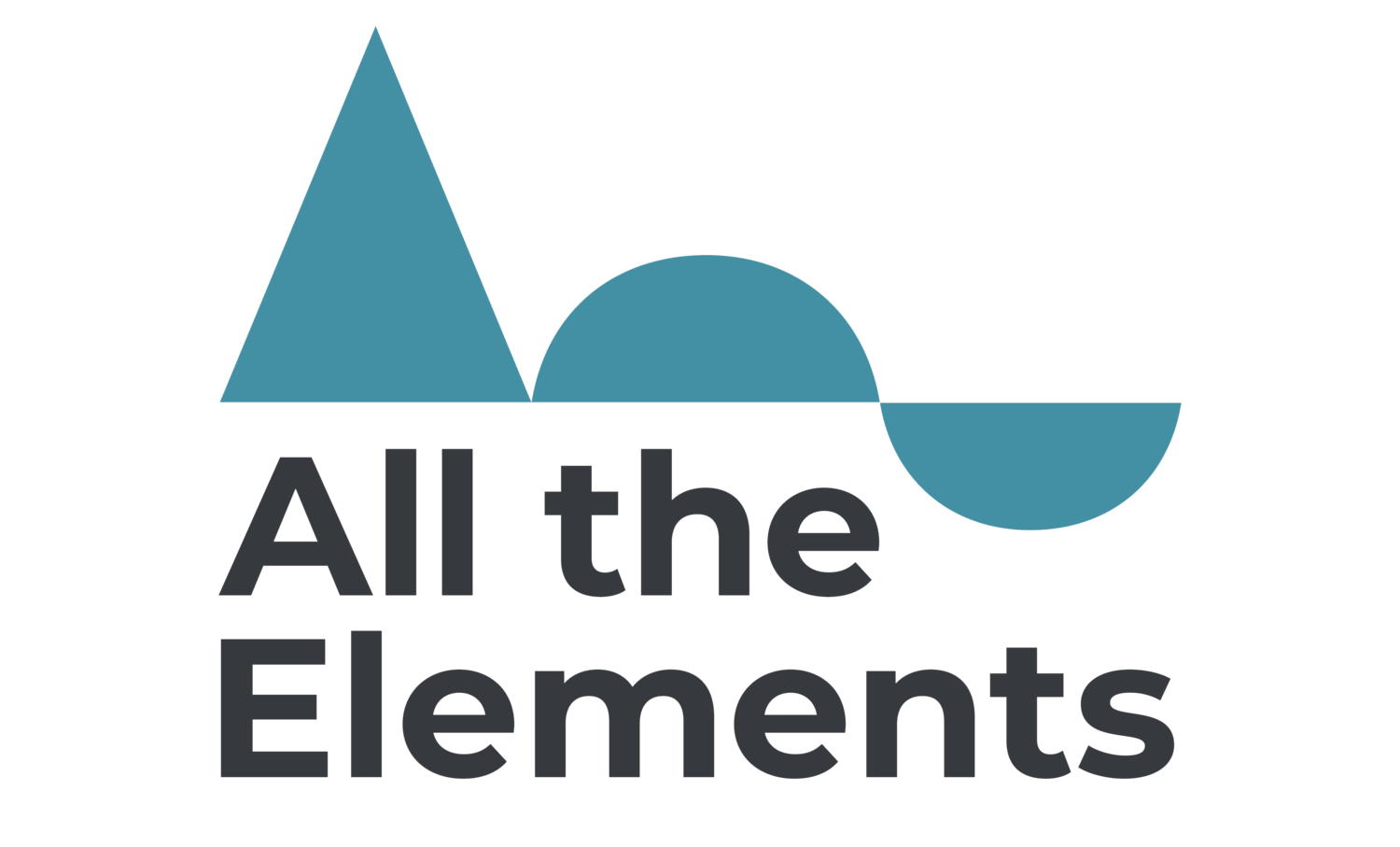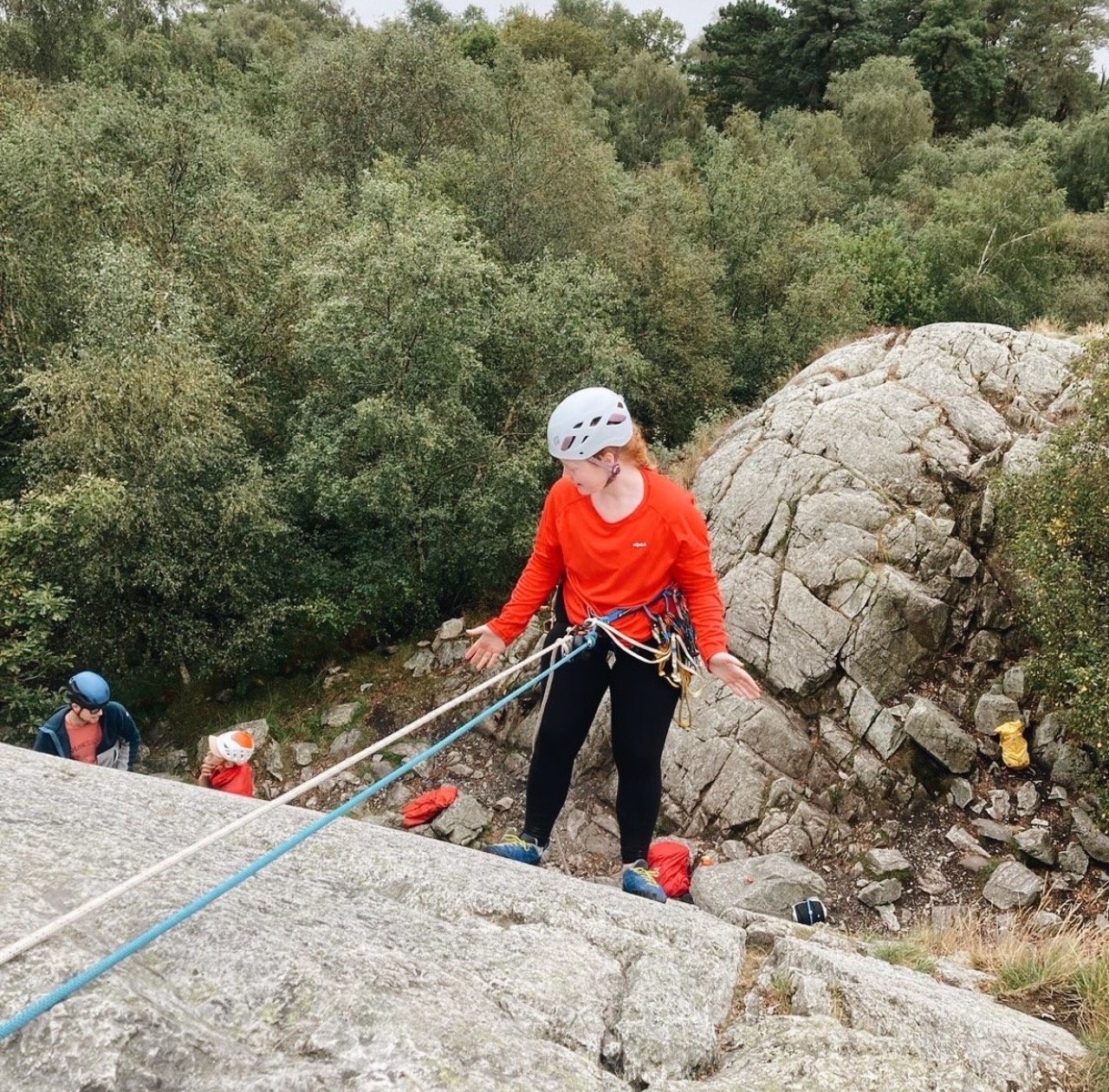Outside Thea’s Way
Reading time 5 mins
Thea is a Dutch Canadian who has found their way to Scotland and has lived in the UK for most of the last eight years. But unlike others I have written about, Thea is undiagnosed. She often goes wild swimming, and enjoys climbing, walking and wild camping.
At 16, Thea had an abnormality develop near her thyroid after getting pneumonia (she calls it her alien baby) which for years made her throat close up anytime she raised her heart rate, amongst other things. But as she got older and through preventative measures, it improved enough that she could start enjoying the great outdoors of Scotland.
During the first lockdown her health went down hill again. She did some initial research into Hypermobile EDS, as her mum had been diagnosed.“it kind of made a lot of my life make sense; like realising that a lot of things that I thought everybody dealt with, they don't deal with. Everybody isn't tired all the time or in pain all of the time. Things like that.” She has the common symptoms such as bendy joints, skin that tears easily, chronic fatigue, chronic pain and anxiety. Currently she is waiting to see a rheumatologist for a formal diagnosis.
Undiagnosed
After years of thorough testing with a series of specialists as a teen, they came to suspect it may be a Thyroglossal duct cyst. Thea was advised by her doctors in Canada not to consider surgical intervention until she was at least 25 unless things drastically worsened. This was so she could finish growing first, and was advised to just continue monitoring it over time to be sure. In her early 20s it became relatively stable due to Thea exercising many precautions in her life and limiting all triggers that typically caused it to flare up.
When Thea tried to follow up her health care for her “alien baby” in the UK at 25 like advised, they struggled to find things on a scan. Due to all her prior health records being in Canada they didn’t have anything to reference, and Thea was unable to get copies sent over internationally (she has copies now). They didn’t just say “We can’t seem to find anything” and leave it there… they called her a liar. This obviously put her off asking for further help, or looking for further diagnosis and treatment. This kind of thing isn’t as uncommon as you’d like to hope. It’s even got a name - “medical gaslighting”!
“I know a lot of things are not right with my body. But like getting gas lit by doctors is not the mood.”
Outside Thea’s way
Thea has to be conscious of her limits. She’ll notice that she’s coming close to a breaking point and will have to put her foot on the breaks for a bit.
She makes adjustments in her schedule. In the days before and after the activity she’ll have less planned so she can save that energy, and then recover from it. With H-EDS she’s much more prone to overstretching and injuring herself or tearing the skin on her hands. So when Thea has a busy period with work, it can be too much of a risk.
“I do have to acknowledge the fact that I can't do both. Which is frustrating, because I would love to go climbing. But I also need to make a living. So I might go like wild swimming, which doesn't impact my physical health as much.”
“I did have a bit of an accident…”
Was Thea’s response when I asked if her health had ever impacted an adventure.
“On the second full day [at Women’s Trad Fest], we were abseiling. I went to go over the edge and it was quite a 90 degree kind of cliff. It had been raining and my feet just kind of slipped from under me, and I ended up folding in half like a clamshell. I kind of fell over and my body was flat against my legs, and I hyperextended both of my knees. The adrenaline managed to get me down, but by the time I got back on top of the top of the crag I was like “nope, something's not right”. I popped some like painkillers and cried a bit, I think mainly because everybody was staring at me rather than because I was in pain. I was quite thankful that we have an automatic car so I didn't have to worry about like shifting gears and stuff.”
For those who can relate
“I think regardless of if you have a diagnosis or not, getting to know your limits is the most important thing, because then you can find out if something is worth pushing your limit. You can kind of do your own safety and risk assessment a bit better. Because I found that for myself sometimes, pushing your limits can be worth it in a way so long as you're still going to be safe afterwards.”
What should non-disabled/non-chronically ill folk know?
1. If someone can climb a Munro one week, then can’t get out of bed the next. Be patient and flexible with that person.
2. Don’t judge a book by its cover “I think there's this misconception that you need to look like shit to have something wrong. Which isn't the case.”
3. “Kind of similar to what we were just saying about doctors and being gas lit with it by them. I think friends and family and colleagues do it too. Sometimes all you need to be able to push through something is to be heard, or have that support. Because support can give you extra motivation or comfort to help you do something.”


